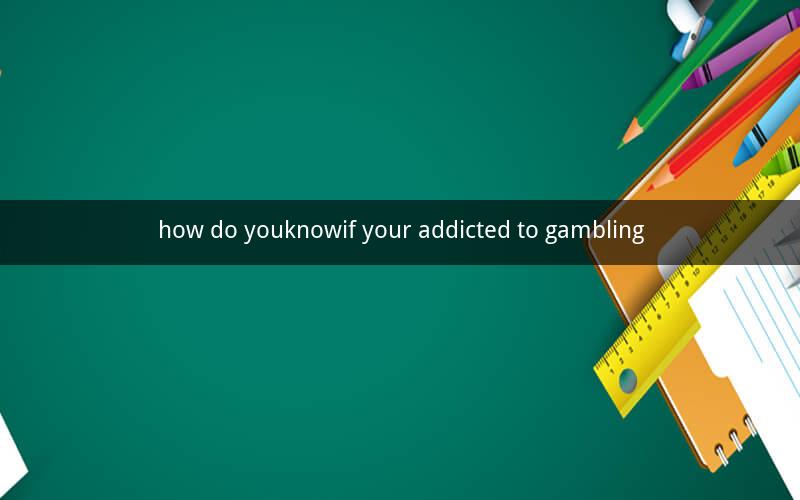
Table of Contents
1. Understanding Gambling Addiction
2. Signs of Problem Gambling
3. Psychological Impact of Gambling Addiction
4. Social and Economic Consequences
5. How to Identify Gambling Addiction in Yourself
6. Seeking Help for Gambling Addiction
7. Treatment Options for Gambling Addiction
8. Support Systems for Recovering Gamblers
9. Preventing Gambling Addiction
10. The Role of Technology in Gambling Addiction
1. Understanding Gambling Addiction
Gambling addiction, also known as compulsive gambling or problem gambling, is a condition characterized by an inability to control or stop gambling despite negative consequences. It is a complex disorder that can affect individuals of all ages, genders, and socioeconomic backgrounds.
2. Signs of Problem Gambling
Identifying the signs of gambling addiction is crucial in determining whether someone is at risk. Some common signs include:
- Preoccupation with gambling, spending a significant amount of time thinking about it.
- Needing to increase the amount of money or time spent gambling to achieve the desired excitement.
- Feelings of guilt, remorse, or shame after gambling.
- Trying to stop or reduce gambling but failing to do so.
- Lying to family, friends, or therapists about gambling activities.
- Using gambling as a way to escape problems or stress.
3. Psychological Impact of Gambling Addiction
Gambling addiction can have severe psychological consequences, including:
- Depression and anxiety
- Suicidal thoughts
- Relationship problems
- Low self-esteem
- Compulsive behaviors in other areas of life
4. Social and Economic Consequences
The social and economic consequences of gambling addiction can be devastating. Some of the impacts include:
- Financial ruin
- Loss of employment
- Legal problems
- Homelessness
- Family breakdown
5. How to Identify Gambling Addiction in Yourself
If you suspect that you may have a gambling addiction, consider the following questions:
- Do you often think about gambling, even when you're not gambling?
- Do you feel the need to increase your bets to achieve the same level of excitement?
- Have you ever felt guilty or ashamed about your gambling habits?
- Have you ever tried to stop gambling but couldn't?
- Have your gambling habits caused problems in your personal or professional life?
If you answer yes to these questions, it may be time to seek help.
6. Seeking Help for Gambling Addiction
Seeking help for gambling addiction is the first step towards recovery. Some options for seeking help include:
- Therapy: Working with a therapist can help you understand the roots of your addiction and develop coping strategies.
- Support groups: Joining a support group, such as Gamblers Anonymous, can provide you with a sense of community and support.
- Treatment programs: Inpatient or outpatient treatment programs can help you address the psychological and emotional aspects of your addiction.
7. Treatment Options for Gambling Addiction
Treatment for gambling addiction can vary depending on the individual's needs. Some common treatment options include:
- Cognitive-behavioral therapy (CBT): CBT helps you identify and change negative thought patterns and behaviors related to gambling.
- Contingency management: This approach involves using rewards and incentives to encourage positive behavior and reduce gambling.
- Family therapy: Family therapy can help repair relationships and improve communication between family members.
8. Support Systems for Recovering Gamblers
Support systems are crucial for recovering gamblers. Some sources of support include:
- Friends and family: Reach out to friends and family members who are supportive and understanding.
- Support groups: Joining a support group can provide you with a sense of community and support.
- Therapists: Working with a therapist can help you develop coping strategies and address any underlying issues.
9. Preventing Gambling Addiction
Preventing gambling addiction involves:
- Setting limits on gambling activities
- Being aware of the signs of problem gambling
- Seeking help early if you suspect you may have a gambling addiction
10. The Role of Technology in Gambling Addiction
Technology has made gambling more accessible than ever before. Some ways technology contributes to gambling addiction include:
- Online gambling platforms
- Mobile apps
- Social media
Questions and Answers
1. What is the difference between gambling and problem gambling?
- Gambling is a recreational activity, while problem gambling is characterized by an inability to control or stop gambling despite negative consequences.
2. Can anyone become addicted to gambling?
- Yes, anyone can become addicted to gambling, regardless of age, gender, or socioeconomic background.
3. How can I tell if someone I know is addicted to gambling?
- Look for signs such as preoccupation with gambling, increased bets, feelings of guilt, and problems in personal or professional life.
4. Is it possible to recover from gambling addiction?
- Yes, it is possible to recover from gambling addiction with the right treatment and support.
5. What is the most effective treatment for gambling addiction?
- The most effective treatment for gambling addiction varies depending on the individual's needs, but cognitive-behavioral therapy (CBT) is often considered the gold standard.
6. Can family therapy help with gambling addiction?
- Yes, family therapy can help repair relationships and improve communication between family members affected by gambling addiction.
7. How can I prevent gambling addiction?
- Set limits on gambling activities, be aware of the signs of problem gambling, and seek help early if you suspect you may have a gambling addiction.
8. What role does technology play in gambling addiction?
- Technology has made gambling more accessible, which can contribute to gambling addiction.
9. How can I support a loved one with a gambling addiction?
- Offer your support, encourage them to seek help, and be patient throughout their recovery journey.
10. Is there a genetic component to gambling addiction?
- Yes, research suggests that there may be a genetic component to gambling addiction, although it is not the sole cause.